 Your new post is loading...
 Your new post is loading...
Moon Phases are dependant on the Moon's relative position to the Sun and Earth. To find out more about the Moon Phase Cycle, read this friendly infographic below!
"Explore the home of human ingenuity online. Find out about our objects, arts projects and medical collection, play educational games and discover climate science. Plus check out our blogs, a tabloid history of science and the latest contemporary science news from the Antenna team."
Welcome to a series that is must read for any PBL or STEM educator. It will include information to reflect and build upon as you consider both PBL and STEM. Best of all, it will finish with over ...
The fourth in a series of five posts on STEM, PBL and the Common Core. Each has a different focus. The previous three posts are also available on this page.
"Knowledge in science, technology, engineering, and math STEM_ canbe a key to a successful future. Here's why a STEM education matters and how you can inspire students to pursue STEM careers. 80 % of the fastest growing occupations in the United States depend on mastery of mathematics and scientific knowledge and skills, but students are not currently equipped to satisfy this growing need."
How do you tell real science from pseudoscience (also known as fake science)? This post explores the 10 questions shown in the image above in depth, helping you to learn questions to ask. In fact, many of these questions could also be used to evaluate websites for accuracy and authenticity.
"In December, 2011, Ian Waitz, MIT’s Dean of Engineering, launched the MIT-K12 project, driven by a series of questions: How can we change the perception of the role of engineers and scientists in the world? What can MIT do, right now, to improve STEM education at the K12 level? What if MIT became a publicly accessible “experiential partner” to the country’s K12 educators? What if MIT students generated short-form videos to complement the work those educators are already doing in their classrooms and homes?" Some products of the work that answers these questions are now available on this website. The videos explain STEM questions and are sorted by grade level as well as science categories: astornomy, biology, chemistry, earth science, engineering, physics and transportation.
MIT continues to be very supportive of education and brings out new tools we can use in our classroom. This site is in the beginning stages, and will accept proposals for videos that you would like to see created. Much more information is available at the site.
"In this post, you are about to discover one of my most resource-filled posts ever! One that is dedicated to highlighting some amazing free resources that will help support STEM-based PBL in the classroom." Find links to a wide variety of resources. Sections include * "resources that provide ideas or blueprints for an entire PBL project;" * sites that may be a foundation for a PBL unit; and * sites with free software for STEM based PBL
The stats on minorities in STEM fields are disheartening and showcase the need for increased attention to the lack of bright young minority students in all STEM occupations. "Despite major changes in American demographics over the past few decades, there has been far less change in the background of students who choose STEM majors, with little diversity both in gender and in racial and ethnic background. The vast majority of STEM grads are white males, followed in numbers by white females, and males of Asian descent."
Why do teachers use digital games in the classroom? * To increase motivation and engagement (70%) * To more effectively reach all learners in their classroom (62% This post explores information published by the Joan Ganz Cooney Center and includes video case studies. If you are thinking of using games in your classroom, or already do, this article provides a variety of resources.
"As sure as one plus one equals two, it happens year after year. Kids who have been bringing home A's in chemistry and acing AP Calculus arrive at college with visions of STEM careers dancing in their heads. Then they hit an invisible, but very painful, wall. According to research from the University of California, Los Angeles, as many as 60 percent of all college students who intend to study a STEM (science, technology, engineering, math) subject end up transferring out." This article looks at some of the reasons why students may be suggests that the reason that students may be disappearing from STEM majors is not that they "are not getting enough math...but that we're teaching K-12 math all wrong."
"The science, technology, engineering, and math workforce is crucial to the economy and even though women represent more than half of the world’s population, women hold less than 25% of STEM jobs. In elementary, middle school, and high school, girls actually take more classes and earn better grades in math and sciences. As women progress into college, a decline in interest in math and sciences occurs and declines further at the graduate level and yet again in the professional level..."
You might think that in the second decade of the twenty first century, high school educators would no longer show evidence of silly old-school biases – but, regrettably, you’d be wrong. In fact, they seem to be persisting in their bias even when...
|
Playing an action video game “can virtually eliminate” the gender difference in a basic capacity researchers call spatial attention, while at the same time reducing the gender difference in the ability to mentally rotate objects, a higher-level...
Sea level is rising -- and at an accelerating rate -- largely in response to global warming.
"Try Engineering is a site that hosts lesson plans and games designed to get students interested in engineering. The lesson plans, 114 in all, are arranged according age and engineering topic. The lesson plans can be downloaded as PDFs."
The Tynker Learning Platform, which uses its own visual programming language, is focused on bringing better STEM education tools into classrooms
"SimCity As game-based learning gains momentum in education circles, teachers increasingly want substantive proof that games are helpful for learning...GlassLab is working with commercial game companies, assessment experts, and those versed in digital classrooms to build SimCityEDU, a downloadable game designed for sixth graders."
This post begins with a quote from President Obama: "“The quality of math and science teachers is the most important single factor influencing whether students will succeed or fail in science, technology, engineering and math.” From this point it veers in a different direction, noting that the issue is that teachers "are not given the freedom to support children in ways that will produce the scientists and innovators our country needs." If we look to our past (and our present) we will find that we are not listening to the advice that "our nation's historic inventors, scientists, and physicists (whom have shared) their advice and experiences." Read the article to learn the experiences of Albert Einstein, Thomas Edison, Richard Feyman, Michio Kaku (which includes a video where he explains "that exams are crushing curiousity out of the next generation..."), as well as individuals around today such as Aaron Iba and Jack Andraka (the student who at the age of 15 created a test for pancreatic cancer). Perhaps the question we need to ask is how do we change the system to support the necessary learning?
Where is emerging technology heading? What may become mainstream in coming years? Here is one view of what the future may bring. You may look at this as a roadmap for students in STEM. This file is also available at http://envisioningtech.com/ as a screen-optimized PDF, a print-optimized PDF and a high resolution PNG.
What is the best way to determine students' skills in science? Paper and pencil or hands-on? "The National Assesment for Education Progress used hands-on experiments as a way to test 4th, 8th, and 12th grade students, and found that this kind of assessment gives a much more accurate reflection of student comprehension." The findings were mixed. Although 76% of students (at all grade levels) "performed simple experiments correctly and accurately observed the results" when experiments involved more data sets the ability to complete the experiment and observe dropped to 36%. For more detailed information please read the post.
You can help get kids interested in STEM fields no matter their age with the help of the iPad and its numerous apps. The fifty apps are categorized into General, Science, Technology, Engineering and Math. A short explanation of each is provided.
Welcome to another post that is dedicated to highlighting an amazing site providing an awesome collection of resources to educators. The site entitled “MIT BLOSSOMS” is so much more... "BLOSSOMS video lessons have the ability to enrich students’ learning experiences in the high school classroom and in some cases even the middle school. This incredible Video Library contains over 50 math and science lessons, all freely available to teachers as streaming video, Internet downloads, DVDs and videotapes. You will find that the lessons really are a complete resource including video segments, a teacher’s guide, downloadable hand-outs, plus a list of incredible online resources relevant to the topic."
Check out our list for some great STEM resources that can help you build your knowledge about everything from calculus to zoology.
Globaloria, the first and largest social learning network, where students develop digital literacies, STEM knowledge and global citizenship skills through game design. This links to games students have created through the program.
|
 Your new post is loading...
Your new post is loading...
 Your new post is loading...
Your new post is loading...










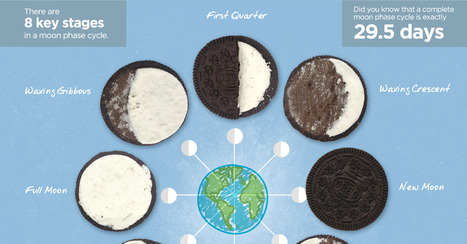


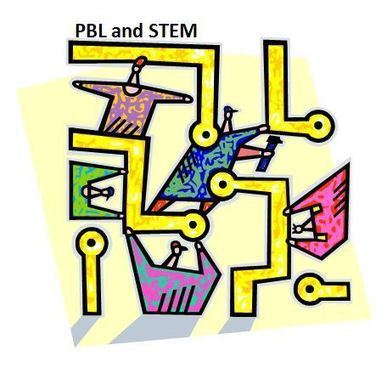

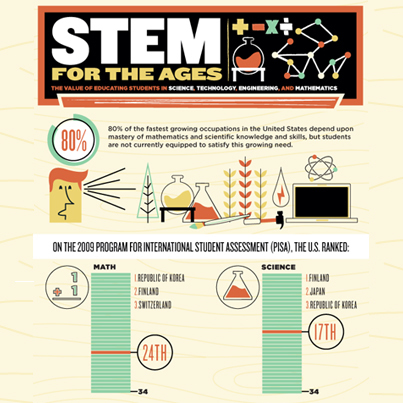
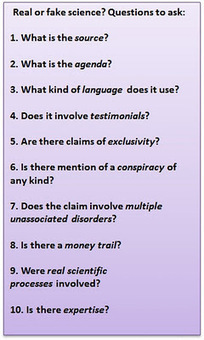
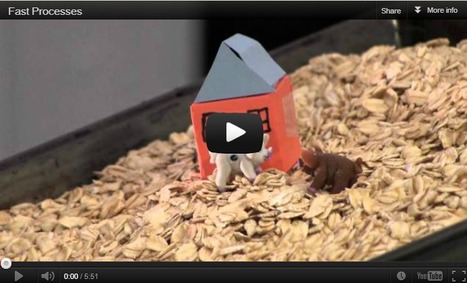
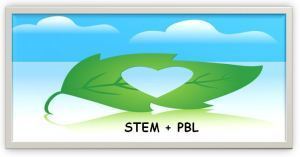

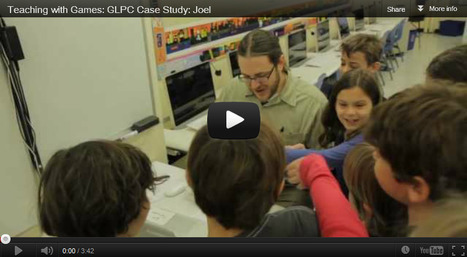




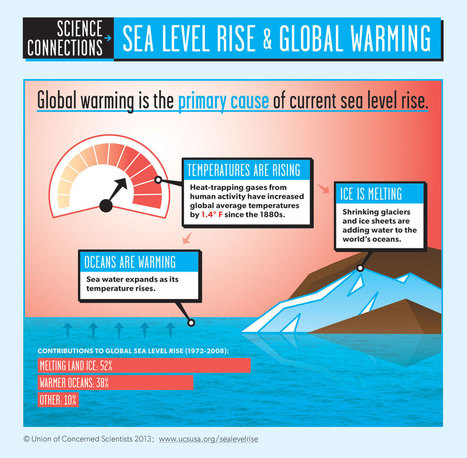
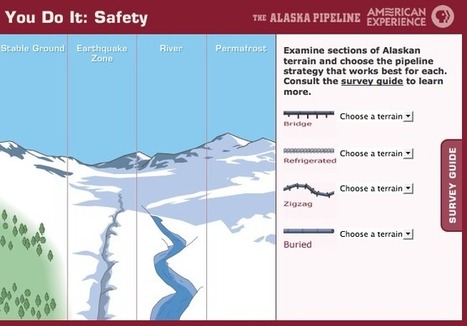


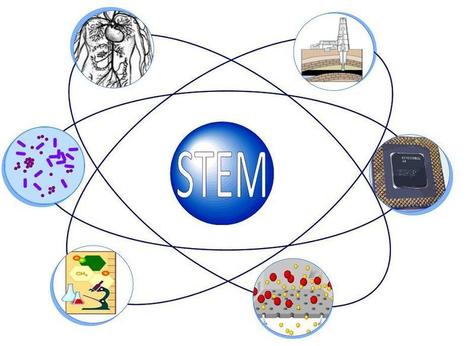


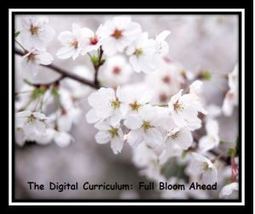

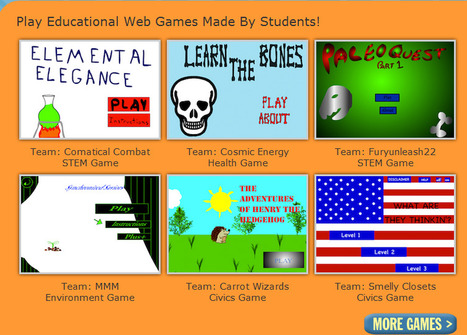





If your students are struggling on learning the moon phase cycle this infographic may help...someone must have had fun eating the filling to create this infographic!
You might also challenge your students to find a typo in the infographic.